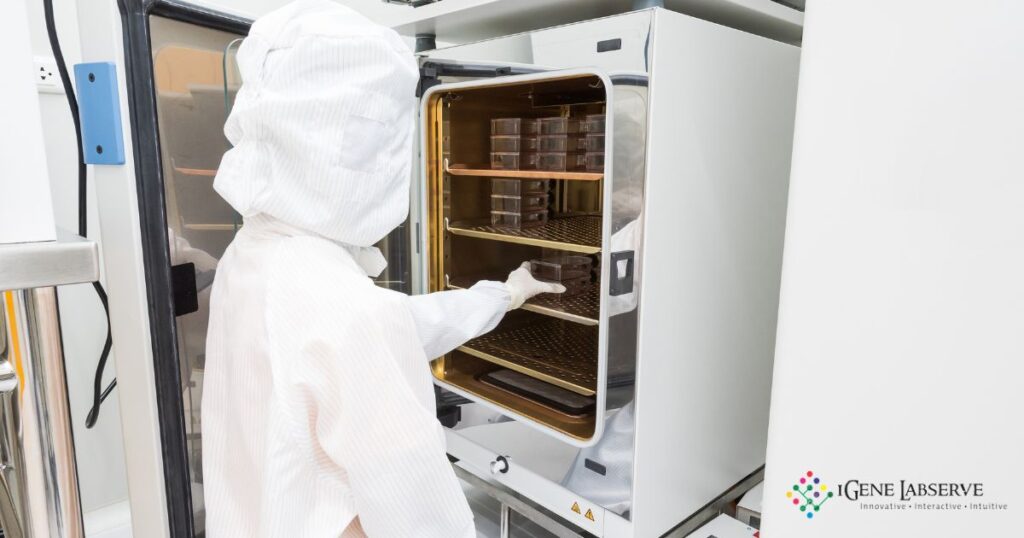While selecting a CO2 incubator, it’s critical to consider factors other than just cost. Inadequately built CO2 incubators might have significant operating costs and jeopardise the sustainability objectives of your lab. Let us help you understand the important factors of getting a suitable CO2 Incubator.
Factors to consider for CO2
Selecting a CO2 incubator involves considering several factors to ensure it meets the specific needs and requirements of your laboratory or research facility. Here are key factors to consider:
Incubator capacity
Choosing a fanless CO2 incubator with direct heating has the benefit of significantly lowering the risk of contamination in comparison to conventional fan-assisted air circulation. This is so that there are no hidden areas for pollutants to hide and a continuous chamber design without air ducts, which makes them much easier to clean.
Gas consumption
Gas consumption can easily exceed the purchase price of a CO2 incubator over time, especially when both CO2 and N2 are required. Not only are costs incurred from the purchase of the gas itself, which includes its delivery to the lab, but also from time spent by staff on replacing and routinely checking gas cylinders.To mitigate these effects, it is advised to look for a CO2 incubator with tight seals, segmented doors, accurate door construction (clearance), and smart regulated gas control.
Sterilization and Contamination Control:
Consider the sterilization method (e.g., high-temperature sterilization, UV light) to prevent contamination. You can look for features such as HEPA filters and in-chamber decontamination systems.
Flexibility to support future needs
Over the course of its more than 15-year existence, a CO2 incubator may undergo several setup adjustments in a laboratory. Selecting a CO2 incubator with a broad range of field-upgradable options will help you stay flexible and prevent the need to purchase new equipment in response to evolving needs. Considerations include the ability to modify the position of the door hinge, the feasibility of adding other features such as relative humidity or water level monitoring, and the ability to manage O2 for hypoxic investigations.
Size and Capacity:
Choose a CO2 incubator with an appropriate size and capacity to accommodate the number and size of culture vessels you typically work with. You always have the chance to consider future growth and scalability needs.
Uniformity and Stability:
Look for CO2 incubators with good airflow and distribution to ensure uniform temperature and gas distribution throughout the chamber. Stability in maintaining set conditions, especially during door openings, is crucial.
A CO2 incubator is a specialized piece of laboratory equipment designed to provide a controlled environment for cell culture and other biological experiments. These incubators are used in research, clinical, and industrial laboratories where maintaining specific temperature, humidity, and gas conditions is crucial for cell growth and experimentation. Here are some key features and functions of CO2 incubators:
If you are looking to buy a quality CO2 Incubator, connect with IGene Labserve by visiting https://www.igenels.com/ or dial 09310696848 to understand everything about the product.

